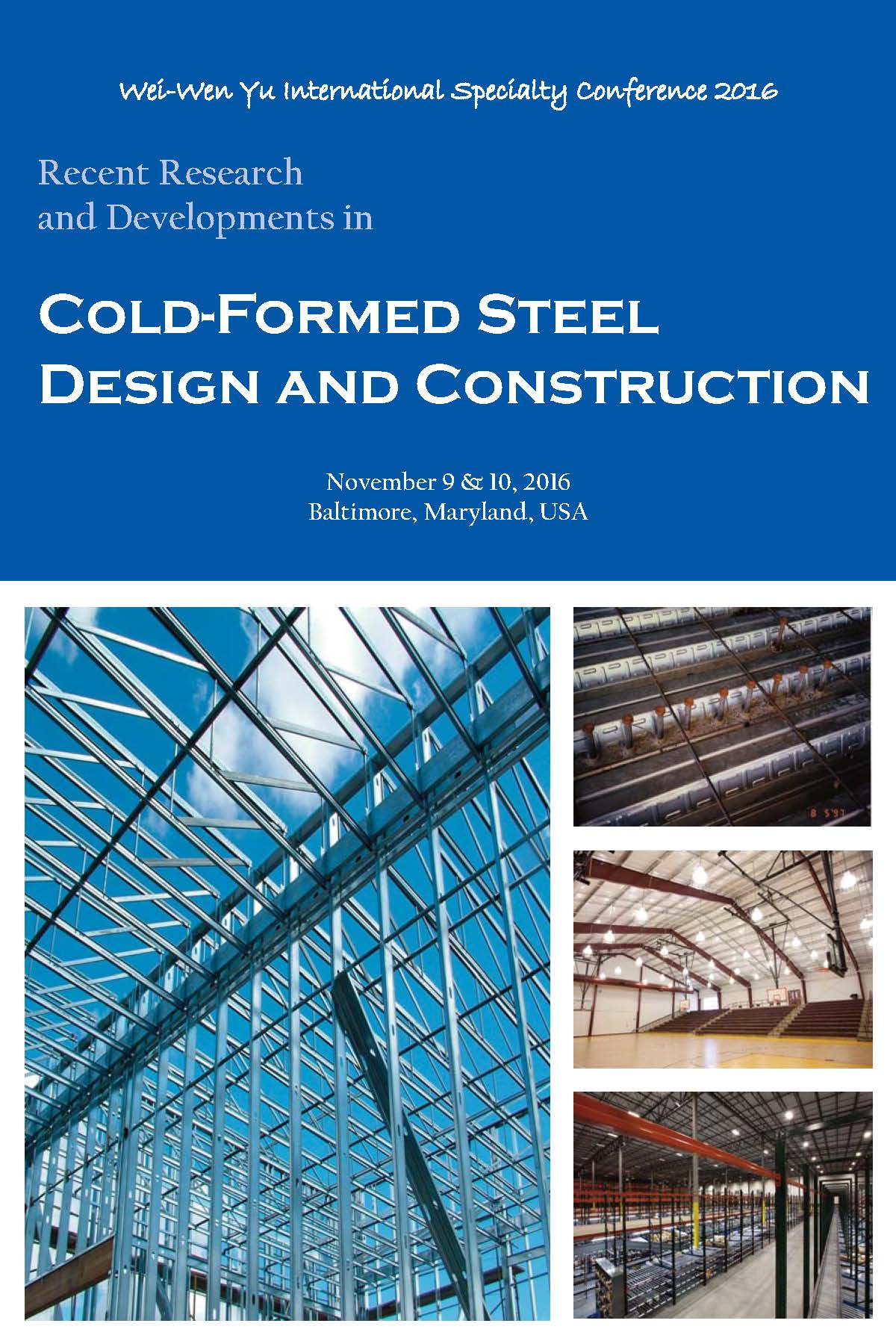Session Dates
09 Nov 2016
Abstract
Geometric imperfections play an important role in the performance and behavior of cold-formed steel members. The objective of this paper is to present recent results from measurements of cold-formed steel members conducted by a laser scanner. The measurements provide complete and precise three-dimensional point clouds of the specimens and can be processed to determine dimensional variations as well as variations within the plates. Processing of the data can range from simple: e.g., mean lip length, to complex: e.g., modal decomposition magnitudes of the measured imperfections. Three different shapes of cold-formed steel members are selected for study: Cee, Zee, and built-up sections comprised of back-to-back Cee’s. Realized dimensions of the studied cold-formed steel members are statistically explored providing mean and standard deviation and correlation data amongst the dimensions (flange width, lip length, flange-to-lip angle, etc.) can be readily performed. In addition, global (bow, camber, and twist) imperfections and cross-section Type I and Type II plate imperfections are determined from the scanned specimens. Modal imperfections decomposed into local, distortional, and global can also readily be calculated. The paper aims to demonstrate the worth of performing the three-dimensional geometric imperfection scanning and to provide useful data for simulations of cold-formed steel members. In the future it is anticipated that a systematic study of member imperfections could be used to provide definitive characterizations to help enable geometric imperfection selection in new analysis-based design approaches.
Department(s)
Civil, Architectural and Environmental Engineering
Research Center/Lab(s)
Wei-Wen Yu Center for Cold-Formed Steel Structures
Meeting Name
International Specialty Conference on Cold-Formed Steel Structures 2016
Publisher
Missouri University of Science and Technology
Document Version
Final Version
Rights
© 2016 Missouri University of Science and Technology, All rights reserved.
Document Type
Article - Conference proceedings
File Type
text
Language
English
Recommended Citation
Zhao, X. and Schafer, B. W., "Measured Geometric Imperfections for Cee, Zee, and Built-Up Cold-Formed Steel Members" (2016). CCFSS Proceedings of International Specialty Conference on Cold-Formed Steel Structures (1971 - 2018). 6.
https://scholarsmine.mst.edu/isccss/23iccfss/session1/6
Measured Geometric Imperfections for Cee, Zee, and Built-Up Cold-Formed Steel Members
Geometric imperfections play an important role in the performance and behavior of cold-formed steel members. The objective of this paper is to present recent results from measurements of cold-formed steel members conducted by a laser scanner. The measurements provide complete and precise three-dimensional point clouds of the specimens and can be processed to determine dimensional variations as well as variations within the plates. Processing of the data can range from simple: e.g., mean lip length, to complex: e.g., modal decomposition magnitudes of the measured imperfections. Three different shapes of cold-formed steel members are selected for study: Cee, Zee, and built-up sections comprised of back-to-back Cee’s. Realized dimensions of the studied cold-formed steel members are statistically explored providing mean and standard deviation and correlation data amongst the dimensions (flange width, lip length, flange-to-lip angle, etc.) can be readily performed. In addition, global (bow, camber, and twist) imperfections and cross-section Type I and Type II plate imperfections are determined from the scanned specimens. Modal imperfections decomposed into local, distortional, and global can also readily be calculated. The paper aims to demonstrate the worth of performing the three-dimensional geometric imperfection scanning and to provide useful data for simulations of cold-formed steel members. In the future it is anticipated that a systematic study of member imperfections could be used to provide definitive characterizations to help enable geometric imperfection selection in new analysis-based design approaches.



